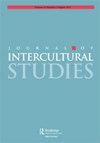Sense of Neighbourhood in a South African Urban Locale
IF 1
Q3 SOCIOLOGY
引用次数: 0
Abstract
ABSTRACT The nature of the unfolding social cohesion in previously racially segregated residential spaces has attracted attention since the collapse of apartheid in South Africa and the subsequent transition to democracy in 1994. This paper uses sense of neighbourhood to investigate the emerging social interactions in Cambridge, a former whites-only residential suburb in East London, South Africa. Fitting a binary logistic regression on survey data from a sample of residents of Cambridge, the paper tests the likelihood of race and gender influencing three indicators of the sense of neighbourhood: the sense of safety, trust and norms of reciprocity. The results show that relational dimensions of the sense of neighbourhood differed along racial lines, with low levels of interracial trust mirroring studies elsewhere in the country, and the national-level South African Reconciliation Barometer survey reports. Due to the voluntaristic nature of relational ties, social integration will remain elusive, and regardless of the extent of racial changes, variations in the sense of neighbourhood will characterise the urban residential spaces.南非城市居民的邻里意识
摘要自1994年南非种族隔离制度崩溃和随后向民主过渡以来,在以前种族隔离的居住空间中展现的社会凝聚力的性质引起了人们的关注。本文使用邻里感来调查剑桥的新兴社会互动,剑桥是南非东伦敦一个以前只供白人居住的郊区。本文对剑桥居民样本的调查数据进行了二元逻辑回归,检验了种族和性别影响邻里感三个指标的可能性:安全感、信任感和互惠规范。结果显示,邻里感的关系维度因种族而异,低水平的跨种族信任反映了该国其他地方的研究,以及国家层面的南非和解晴雨表调查报告。由于关系纽带的自愿性,社会融合仍然难以捉摸,无论种族变化的程度如何,邻里意识的变化都将成为城市居住空间的特征。
本文章由计算机程序翻译,如有差异,请以英文原文为准。
求助全文
约1分钟内获得全文
求助全文
来源期刊

Journal of Intercultural Studies
SOCIOLOGY-
CiteScore
1.80
自引率
10.00%
发文量
67
期刊介绍:
Journal of Intercultural Studies showcases innovative scholarship about emerging cultural formations, intercultural negotiations and contemporary challenges to cultures and identities. It welcomes theoretically informed articles from diverse disciplines that contribute to the following discussions: -Reconceptualising notions of nationhood, citizenship and belonging; -Questioning theories of diaspora, transnationalism, hybridity and ‘border crossing’, and their contextualised applications; -Exploring the contemporary sociocultural formations of whiteness, ethnicity, racialization, postcolonialism and indigeneity -Examining how past and contemporary key scholars can inform current thinking on intercultural knowledge, multiculturalism, race and cultural identity. Journal of Intercultural Studies is an international, interdisciplinary journal that particularly encourages contributions from scholars in cultural studies, sociology, migration studies, literary studies, gender studies, anthropology, cultural geography, urban studies, race and ethnic studies.
 求助内容:
求助内容: 应助结果提醒方式:
应助结果提醒方式:


